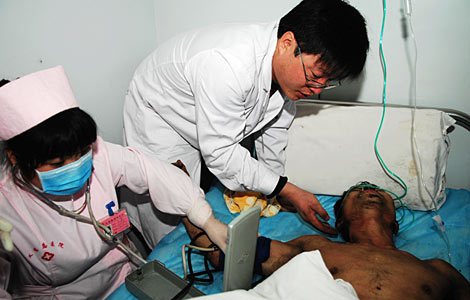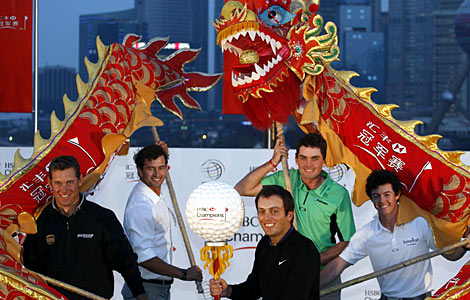Blaming China won't solve crisis
Updated: 2011-11-04 17:04
(Xinhua)
|
|||||||||||
BEIJING - Minister of Commerce Chen Deming on Friday stressed that China is doing its bit to rebalance global trade by expanding domestic demand and cutting import licenses and tariffs.
Chen's words came in an article published in the Daily Telegraph of the United Kingdom, saying attempts by some countries to bash China on trade and currency arrangements by politicizing economic issues and using trade protectionism won't help resolve their own domestic strife.
"Rather, they could negate our efforts to expand imports, crush global market confidence and cast a dark shadow over the recovery prospects of the world economy," Chen wrote in the article.
As China implements a more proactive strategy to open up its economy, its imports will exceed $1.7 trillion this year, and amount to roughly $10 trillion over the next five years, Chen said.
"We hope that other countries can adopt a longer-term vision and a more open mind-set, engage more in cooperation and partnership and less in the blame game, and join together to sail in the same boat through the current difficulties," he wrote.
The minister said China stands ready to work with other countries to strengthen dialogue and coordination on macro-economic controls, resist trade protectionism, disperse the haze cast by the global financial crisis, and promote a robust, sustainable and balanced world economy.
In the article, Chen recalled that since the outbreak of the international financial crisis, China has steered its macro-economic policies so as to expand domestic demand, stimulate imports while stabilizing exports, and promote balanced global trade.
According to Chen, China's imports soared by 23.3 percent between 2008 and 2010, creating $1 trillion market for the rest of the world. At the same time, its trade surplus shrank from nearly $300 billion in 2008 to $107.1 billion as of the first three quarters of 2011, decreasing as a percentage of GDP from 6.5 percent to 2.2 percent.
"In short, China has become an important factor in promoting balanced global trade growth and world economic recovery," he wrote.
He noted that China has phased out import licensing requirements for more than 800 tariff lines, and abolished customs duties on goods from 95 percent of the world's least-developed countries.
China is now the largest export market for Japan, Republic of Korea, southeast Asia, Brazil and South Africa. It is the second-largest export market for the European Union, and the third largest for the United States, according to Chen.
For many American and European businesses, it was orders coming from China that enabled them to restart production after the crisis hit, and put their employees back to work, Chen added.
Related Stories
China's foreign trade to top $3 this year: official 2011-10-29 16:07
China-Germany trade to hit new highs 2011-10-22 17:08
US urged not to provoke trade war with China 2011-10-22 17:18
Work underway on China-ASEAN yuan trade settlement agreement 2011-10-22 14:22
Hot Topics
Libya conflict, Gaddafi, Oil spill, Palace Museum scandal, Inflation, Japan's new PM, Trapped miners, Mooncake tax, Weekly photos, Hurricane Irene
Editor's Picks

|

|

|

|

|

|







